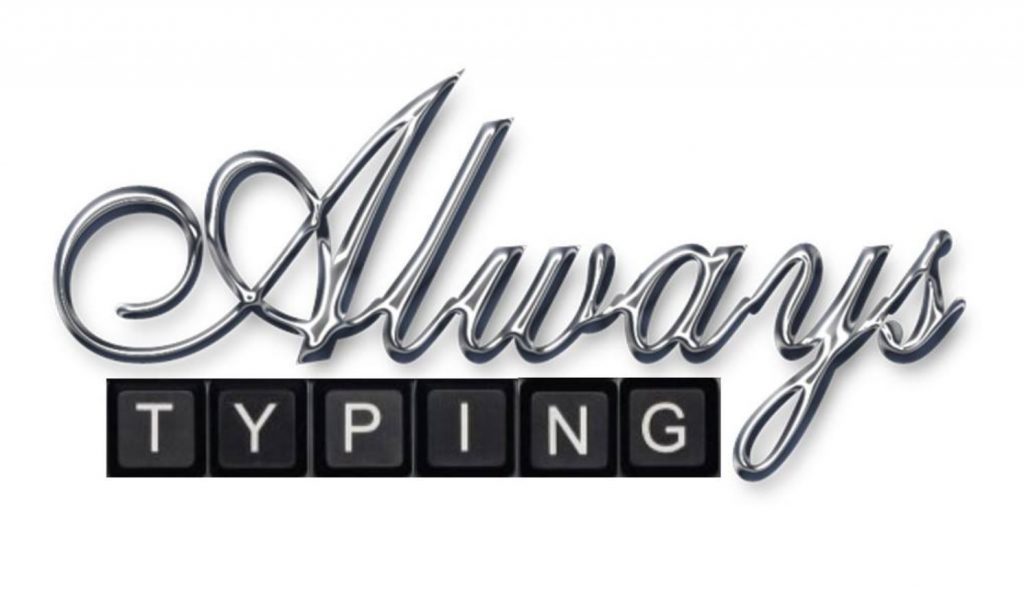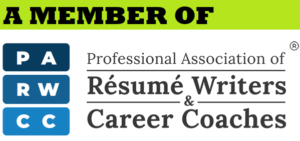The recent wave of federal layoffs has created uncertainty for thousands of government employees. With shifting political priorities, restructuring, and an increased focus on government efficiency, many workers are now facing the reality of transitioning out of federal employment. Unlike past layoffs, these changes are happening on a larger scale and with different economic conditions, making it critical for affected employees to understand their next steps.
If you’re a federal employee impacted by these changes, you might be wondering: What does the future hold? Where are my best job opportunities? How do I make myself competitive in today’s job market? This guide will help you navigate the current landscape and position yourself for success in the private sector or other employment opportunities.
Table of Contents
ToggleUnderstanding the Federal Layoffs
The recent federal layoffs have significantly impacted the landscape of government employment, leading to widespread uncertainty among federal workers. To navigate this challenging environment, it’s essential to grasp the underlying causes, the scope of affected positions, and the broader implications for the public sector.
Causes of the Federal Layoffs
Several key factors have contributed to the current wave of federal layoffs:
-
Budgetary Constraints and Policy Shifts: The administration’s emphasis on reducing government spending has led to substantial budget cuts across various federal agencies. This fiscal tightening aligns with policy shifts aimed at decreasing the federal workforce and reallocating resources to other priorities. For instance, the Department of Education has faced significant staff reductions, resulting in the termination of numerous research programs and the wastage of years of work and millions of dollars.
-
Agency Restructuring and Efficiency Measures: Initiatives to streamline government operations have prompted agencies to restructure, often leading to workforce reductions. The Department of Government Efficiency (DOGE), led by Elon Musk, has been instrumental in these efforts, targeting a 25% reduction in federal real estate and associated personnel.
-
Elimination of Specific Departments: In some cases, entire departments have been targeted for closure to decentralize control and return authority to the states. Notably, the administration announced plans to shut down the Department of Education, aiming to delegate education authority back to the states while maintaining essential services.
Impacted Agencies and Positions
The layoffs have not been uniform across the federal government; certain agencies and positions have been more affected than others:
-
Department of Education: Facing plans to eliminate nearly half its workforce, the Department has seen the cancellation of over 160 research contracts valued at $900 million, severely impacting educational research efforts.
-
Department of Veterans Affairs (VA): Proposed budget cuts could result in the reduction of up to 80,000 employees, raising concerns about the quality of services provided to veterans.
-
Probationary Employees: Individuals with less than a year of service, lacking full civil service protections, have been particularly vulnerable. As of February 2025, approximately 30,000 such workers had been laid off or fired, with several lawsuits alleging the dismissals were illegal.
-
Diversity and Inclusion Programs: Executive orders eliminating diversity initiatives have led to the suspension of funding for related programs, termination of probationary employees, and closure of diversity offices within agencies like NASA, affecting the space science community.
Broader Implications
The ramifications of these layoffs extend beyond the immediate loss of employment:
-
Service Delivery: Significant staff reductions threaten the capacity of federal agencies to effectively serve the public. For example, cuts at the VA have raised alarms about delayed patient care and inadequate oversight, prompting demands for the reversal of these decisions.
-
Economic Ripple Effects: Widespread layoffs can lead to reduced consumer spending, potentially dampening economic growth. While the overall labor market remains healthy, with low unemployment rates, the long-term effects of federal job cuts on the economy warrant close monitoring.
-
Legal Challenges and Reinstatements: The swift execution of layoffs has led to complex legal battles. Courts have ordered the temporary reinstatement of thousands of fired federal employees, complicating the administration’s efforts to reduce the workforce.
Understanding these facets of the federal layoffs is crucial for affected employees as they navigate their career transitions and for stakeholders assessing the future of public sector employment.
How Federal Employees Can Successfully Move from Public Sector to Private After a Layoff
Despite layoffs, many industries are eager to hire professionals with federal experience. Here are some of the best career paths for displaced government employees:
1. Government Contracting & Consulting
Major consulting firms like Deloitte, Booz Allen Hamilton, and Accenture actively hire former government employees.
Private defense contractors, including Lockheed Martin and Northrop Grumman, need professionals with federal expertise.
2. Private Sector Policy & Compliance Roles
Companies need regulatory compliance experts to help them navigate federal and state regulations.
Risk management and legal compliance positions are in high demand in industries like finance, healthcare, and energy.
3. Technology & Cybersecurity
The cybersecurity sector is experiencing explosive growth, with a strong need for professionals familiar with government security protocols.
Former federal IT professionals can find opportunities at companies like Amazon Web Services (AWS), Microsoft, and Palantir.
4. Healthcare Administration & Policy
Organizations like hospitals, pharmaceutical companies, and health policy think tanks value professionals with government health policy experience.
5. Nonprofits & International Organizations
Many former federal employees find meaningful careers at organizations like the United Nations, World Bank, and international NGOs.
Resume Strategies for Moving from Public Sector to Private Sector Jobs
Making the Transition: Why Your Federal Resume Won’t Work in the Private Sector
One of the hardest adjustments for federal employees transitioning into private-sector jobs is rethinking their resume. Many government professionals are used to long, highly detailed federal resumes—sometimes stretching five or more pages—filled with job descriptions, references, salary history, and even supervisor names.
In contrast, private-sector hiring managers spend an average of six to seven seconds scanning a resume before deciding whether to read further. That’s right—mere seconds.
Always Typing Resumes recently worked with a former federal employee who had spent years in government service and was applying to private-sector jobs for the first time. After their federal resume was written into a concise, two-page format optimized for corporate hiring managers, they sent it back to me with expanded paragraphs of text, long descriptions, and extensive details that read more like a federal job application than a business resume.
The client’s frustration was clear:
“I need employers to see everything I’ve done. Why cut out so much? Don’t they need the details?”
This is a completely understandable and common instinct. For years, federal employees are trained to submit comprehensive, detail-heavy applications with exhaustive information. But in the private sector, this approach can actually hurt your chances of landing a job.
Why Concise, Impact-Driven Resumes Win in the Private Sector
Imagine a hiring manager with 100+ resumes sitting in their inbox. They’re skimming quickly, looking for key qualifications, impact, and achievements. If they open your resume and see a big wall of text, they’re likely to move on before even getting to your best accomplishments.
✅ Private-sector resumes need to be short, compelling, and focused on results.
✅ Hiring managers don’t need to know everything you did—they need to know why you’re valuable.
✅ The goal is not to include every responsibility, but to showcase your impact in a way that makes them want to interview you.
If you’re feeling frustrated by the shift, you’re not alone. But mastering this difference is key to getting noticed in private-sector hiring. Here’s how to rewrite your federal resume into a private-sector format that gets results.
Interviewing After Federal Employment: Proving Your Value to Private-Sector Hiring Managers
For many former federal employees, interviewing for a private-sector job feels completely different from the structured, standardized hiring process of government agencies. One of the biggest challenges? Shifting the conversation from responsibilities to impact.
A private-sector employer isn’t hiring you because of what you were assigned to do in your last job—they’re hiring you because of what you actually achieved and how that translates into value for their company.
Let’s face it: There are a lot of things people are “responsible for” that never actually get done. If you were “responsible for” managing a major initiative, but there’s no evidence of how it improved efficiency, saved costs, or delivered measurable outcomes, that’s not enough. Hiring managers want to see proof of execution, not just intention.
How to Shift Your Interview Answers from Responsibilities to Results
When preparing for interviews, avoid listing what was on your job description and instead focus on specific, tangible achievements. Use the STAR method (Situation, Task, Action, Result) to ensure your answers are structured around impact:
🔹 Instead of this:
“I was responsible for overseeing procurement contracts for my agency.”
✅ Say this instead:
“I managed $50 million in procurement contracts and implemented a new vendor evaluation process that cut costs by 15% while ensuring compliance with federal regulations.”
🔹 Instead of this:
“I was responsible for leading a team of analysts.”
✅ Say this instead:
“I led a team of six analysts and introduced a new data visualization system that reduced reporting errors by 30% and improved executive decision-making speed.”
🔹 Instead of this:
“I was responsible for coordinating interagency communications.”
✅ Say this instead:
“I streamlined interagency communication between three departments, reducing processing delays from six weeks to two weeks and improving collaboration on high-profile projects.”
Key Questions to Expect in a Private-Sector Interview (and How to Answer Them)
1. “Tell me about yourself.”
- This is not an invitation to list your entire federal career.
- Instead, briefly summarize your expertise, the impact you’ve made, and how that aligns with this new role.
- Example:
“I’ve spent the last 10 years managing high-stakes federal projects with multimillion-dollar budgets. My expertise is in streamlining operations and improving efficiency—one of my biggest accomplishments was reducing operational costs by 20% in my last role. I’m now looking to bring that experience to a fast-paced corporate environment where I can drive results and contribute to business growth.”
2. “Why are you leaving government work?”
- Keep your answer positive and forward-looking (avoid politics or negativity).
- Focus on what excites you about the private sector rather than why you’re leaving government.
- Example:
“I’ve had a great career in federal service, but I’m excited about the opportunity to apply my experience in a setting where I can drive innovation, improve efficiency, and have a direct impact on business growth.”
3. “How do your government skills translate to this role?”
- Be specific—don’t assume they understand the private-sector relevance of your experience.
- Highlight transferable skills like leadership, problem-solving, and data-driven decision-making.
- Example:
“In my federal role, I managed large-scale projects with complex stakeholder coordination. That experience directly translates to this role, where I’ll be working cross-functionally to streamline operations and drive efficiency.”
4. “Do You Have Any Questions for Me?”
Yes—you should always have questions prepared for the interviewer.
Many job seekers focus so much on answering questions that they forget a critical part of the interview: evaluating whether this company is the right fit for them. An interview isn’t just about convincing the employer to hire you—it’s also about determining whether this role aligns with your career goals, values, and work style.
A strong list of thoughtful questions shows the employer that:
✅ You’ve done your research.
✅ You’re serious about the opportunity.
✅ You’re thinking about how you’ll fit into the company’s culture and long-term success.
Smart Questions to Ask the Interviewer
📌 About the Role:
- “What does success look like in this role within the first 90 days?”
- “What are the biggest challenges the person in this role will face?
📌 About Career Growth & Development:
- “What opportunities for professional development does the company offer?”
- “Where have successful employees in this role progressed within the company?”
📌 About the Hiring Process:
- “Is there anything about my experience or qualifications that gives you hesitation?” (This gives you a chance to address any concerns directly.)
- “What are the next steps in the hiring process?”
Own Your Impact
Private-sector interviews are your opportunity to sell yourself—not just list what you’ve done. Employers want proof that you can drive results, solve problems, and contribute to their company’s success.
Before your interview, rehearse your answers using impact-driven examples. If you can confidently demonstrate how you made a difference in your past roles, you’ll show hiring managers why you’re the right person for the job.
Next Steps for Federal Workers
If you’ve been affected by federal layoffs, don’t panic—there are plenty of opportunities available for professionals with your skills and expertise.
What You Should Do Right Now:
✅ Start updating your resume and tailoring it for private-sector roles.
✅ Begin networking with former colleagues and industry professionals.
✅ Research companies actively hiring former government employees.
✅ Consider professional resume writing and career coaching services to ensure a smooth transition.
Navigating a career change after federal employment can feel overwhelming, but with the right strategy, you can successfully transition into an exciting and rewarding new role.
📩 Need expert help? We specialize in resume writing and career coaching
We specialize in resume writing and career coaching for federal employees transitioning to the private sector. Contact us today to get started! 🚀



